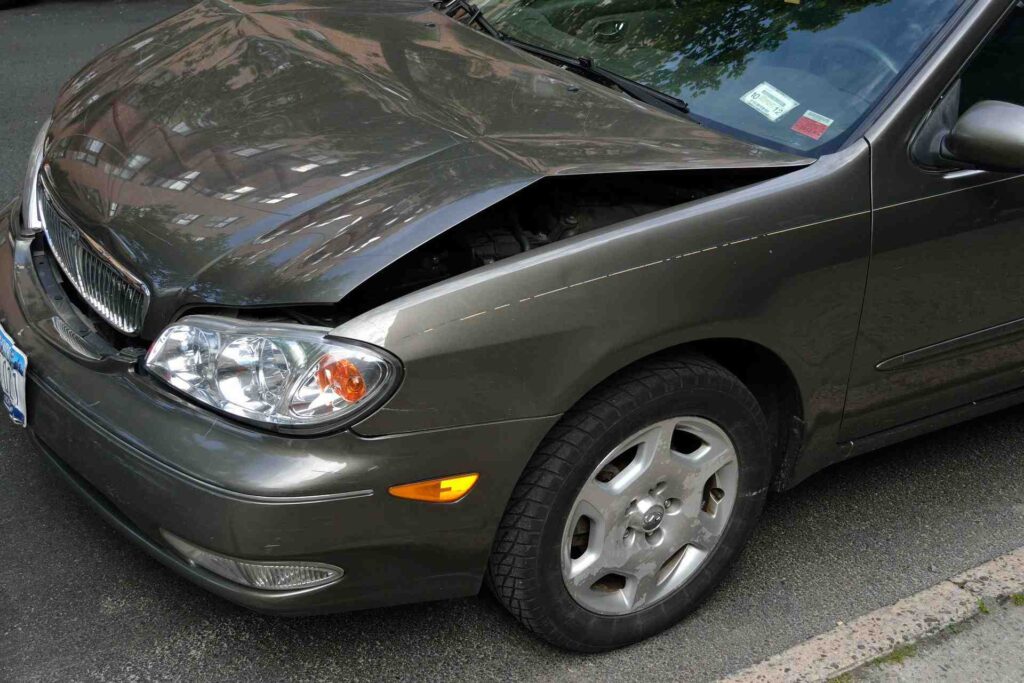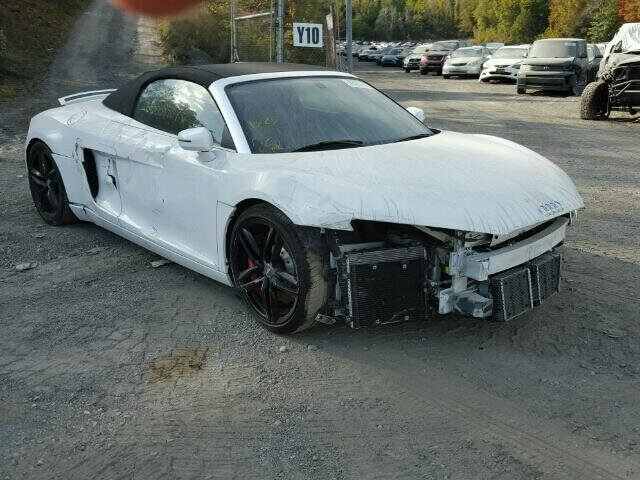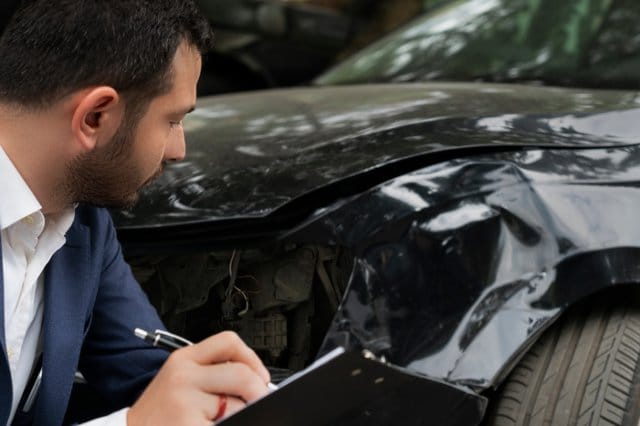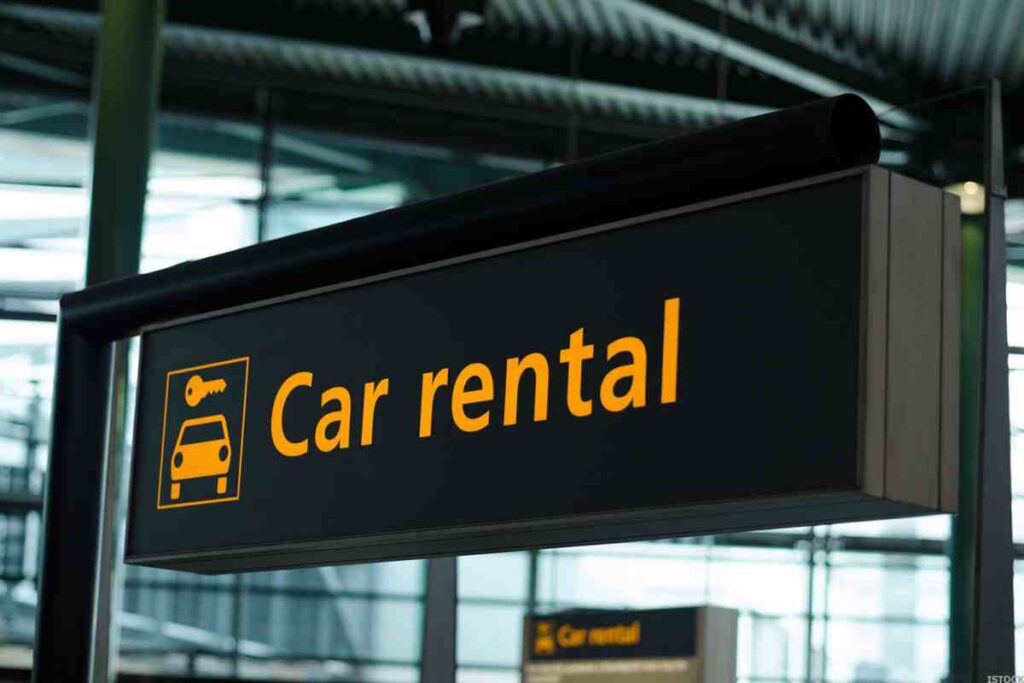When you’re buying a used car, you might come across vehicles with a “rebuilt title.” But what does this mean for your insurance? A rebuilt title is given to cars that were once considered a total loss but have been repaired and are now roadworthy again. However, having a rebuilt title can affect how much you pay for insurance and what kind of coverage you can get. In this article, we’ll explore does a rebuilt title affects insurance, what you need to know before insuring such a car, and tips for getting the best coverage. If you’re considering buying or insuring a vehicle with a rebuilt title, keep reading to find out how to handle this situation.
Recommended:
Is Harley Davidson Motorcycle Insurance Good?
Is It Cheaper to Get Car Insurance Through A Broker?
Does Being Married Lower Your Car Insurance?
Why is Car Insurance So Expensive In Texas?
What Are Rebuilt Title Vehicles?

A rebuilt title is issued to a vehicle that was previously declared a total loss by an insurance company and given a salvage title. This means the vehicle had significant damage from an accident, flood, fire, or other incidents, making the cost of repairs higher than the car’s value. The key difference between a rebuilt title and a salvage title lies in the vehicle’s condition and usability. A salvage title indicates that the vehicle is not roadworthy and is typically sold for parts or scrap. In contrast, a rebuilt title signifies that the vehicle has been repaired and restored to a roadworthy condition.
The process for a vehicle to receive a rebuilt title involves several steps. First, the vehicle is declared a total loss and issued a salvage title. Next, the vehicle undergoes extensive repairs to restore it to a functional state. Once the repairs are completed, the vehicle must pass a thorough inspection by the state or jurisdiction to ensure it meets safety and operational standards. If the vehicle passes this inspection, it is then issued a rebuilt title, allowing it to be legally driven on public roads.
Does A Rebuilt Title Affect Insurance?
Yes, a rebuilt title does affect insurance in several ways. Vehicles with rebuilt titles are generally more challenging to insure compared to those with clean titles. You can usually get liability insurance for such cars, but getting full coverage, which includes collision and comprehensive insurance, can be more challenging and expensive.
The primary reasons for this reluctance include the difficulty in accurately assessing the vehicle’s value and the increased risk associated with potential pre-existing damage. Since a rebuilt title vehicle has undergone significant repairs, insurers may find it challenging to determine whether any future damage is due to a new incident or related to the previous damage. Additionally, rebuilt title vehicles are typically valued at 20% to 40% less than similar vehicles with clean titles, which can affect the insurance payout in the event of a claim.
Moreover, safety concerns play a significant role. Rebuilt title vehicles might have underlying issues that were not fully addressed during the repair process, leading to potential safety risks on the road. This increased risk can result in higher insurance premiums. Therefore, while it is possible to insure a rebuilt title vehicle, the process can be more complex and costly compared to insuring a vehicle with a clean title.
Coverage Available for Rebuilt Title Vehicles
When it comes to insuring a vehicle with a rebuilt title, the options can be more limited compared to insuring a vehicle with a clean title. Here are the main types of insurance coverage typically available for rebuilt title vehicles:

- Liability Coverage: This is the most commonly available type of insurance for rebuilt title vehicles. Liability coverage is required by law and covers damages to other people and their property in the event of an accident where you are at fault.
- Comprehensive Coverage: Some insurance companies may offer comprehensive coverage for rebuilt title vehicles, but it is less common. Comprehensive coverage protects against non-collision-related damages such as theft, vandalism, fire, and natural disasters.
- Collision Coverage: Similar to comprehensive coverage, collision coverage is less frequently offered for rebuilt title vehicles. This type of coverage pays for damages to your vehicle resulting from a collision with another vehicle or object.
- Uninsured/Underinsured Motorist Coverage: This coverage is sometimes available and protects if you are involved in an accident with a driver who does not have sufficient insurance.
- Medical Payments Coverage: Also known as MedPay, this coverage can help pay for medical expenses for you and your passengers in the event of an accident.
- Personal Injury Protection (PIP): In some states, PIP coverage is mandatory and helps cover medical expenses, lost wages, and other related costs regardless of who is at fault in an accident.
It’s important to note that not all insurance companies offer full coverage for rebuilt title vehicles. Companies like State Farm and Geico may provide full coverage insurance, while others like Progressive, Allstate, and Mercury might only offer liability coverage. Additionally, premiums for rebuilt title vehicles can be higher due to the increased risk and difficulty in assessing the vehicle’s value.
Pros and Cons of Buying a Rebuilt Title Vehicle
| Pros | Cons |
|---|---|
| Rebuilt title vehicles are typically sold at a significantly lower price compared to similar models with clean titles. | Insuring a rebuilt title vehicle can be more difficult and expensive. Some insurers may not offer full coverage, and premiums may be higher. |
| Vehicles with rebuilt titles usually need to pass a state inspection to ensure they are roadworthy. | Rebuilt title vehicles generally have a lower resale value compared to cars with clean titles. Selling a rebuilt title vehicle can be more challenging, and you may receive lower offers. |
| You can request documentation about the vehicle’s repair history, which can help you understand the extent of the damage and the quality of the repairs. | There is a risk of overlooking critical damage that was not fully repaired. Rebuilt title vehicles may have underlying issues that could lead to future problems. |
| Some rebuilt title vehicles may have had minimal damage before reconstruction, such as hail damage, which might not affect the car’s performance. | The vehicle might require additional repairs after purchase, which can add to the overall cost. |
| Rebuilt title vehicles may have safety issues that were not completely addressed during the repair process. This can pose risks to the driver and passengers. |
Steps to Insure a Rebuilt Title Vehicle
Insuring a rebuilt title vehicle involves several steps to ensure that the vehicle is roadworthy and meets the insurance company’s requirements. Here’s a step-by-step guide to help you navigate the process:
- Secure a Rebuilt Title: Ensure that the vehicle has been repaired and has passed all necessary inspections to receive a rebuilt title. Without this title, you cannot legally insure or drive the vehicle.
- Obtain a Mechanic’s Statement: Get an official statement from a certified mechanic confirming that the vehicle is in good working condition. This statement can help reassure insurance companies about the vehicle’s safety and reliability.
- Gather Documentation: Collect all relevant documents, including the rebuilt title, inspection reports, repair receipts, and the mechanic’s statement. Having thorough documentation can streamline the insurance process.
- Shop Around for Insurance: Contact multiple insurance companies to compare quotes and coverage options. Not all insurers offer full coverage for rebuilt title vehicles, so it’s important to find one that does.
- Choose the Right Coverage: Decide on the type of coverage you need. While liability coverage is usually available, you may need to search more extensively for comprehensive and collision coverage.
- Provide Vehicle History: Be ready to provide detailed information about the vehicle’s history, including the nature of the damage and the repairs performed. Transparency can help build trust with the insurer.
- Complete the Application: Fill out the insurance application with all the required information and submit the necessary documents. Ensure that all details are accurate to avoid any issues later.
- Review the Policy: Once you receive an insurance offer, carefully review the policy terms and conditions. Make sure you understand the coverage limits, exclusions, and any special conditions related to the rebuilt title.
- Maintain Regular Inspections: After obtaining insurance, continue to have the vehicle inspected regularly to ensure it remains in good condition. This can help prevent future issues and maintain your insurance coverage.
Following these steps can help you successfully insure a rebuilt title vehicle and ensure that you have the necessary coverage to drive legally and safely.
Why Insuring a Car With a Rebuilt Title More Expensive?

Insuring a car with a rebuilt title is generally more expensive compared to insuring a vehicle with a clean title due to several factors. Firstly, cars with rebuilt titles often have lower market values, typically 20-40% less than similar cars with clean titles. This lower value can make it harder for insurers to determine the car’s worth accurately, leading to higher premiums to cover potential losses.
Secondly, there are concerns about the quality of repairs. Even though the car has been fixed, there might be hidden issues that weren’t fully addressed during the repair process. These unresolved problems can lead to more frequent and costly claims, which makes insurers charge more to offset the risk.
Lastly, safety is a significant factor. Rebuilt cars might not be as safe as undamaged ones, increasing the likelihood of accidents and subsequent claims. Insurers account for this increased risk by raising insurance costs.
Overall, the combination of lower market value, potential hidden damage, and safety concerns makes insuring a rebuilt title car more expensive.
Tips for Car Buyers and Owners
Buying and owning a car with a rebuilt title can be a smart financial decision if approached with caution and thorough research. Here are some essential tips for car buyers and owners to ensure a smooth experience:
- Do Your Research: Before purchasing a rebuilt title vehicle, research its history thoroughly. Obtain a vehicle history report from services like Carfax or AutoCheck to understand the extent of the previous damage and the repairs performed.
- Get a Professional Inspection: Hire a certified mechanic to inspect the vehicle. This inspection can reveal any underlying issues that might not be apparent and ensure that the repairs were done correctly.
- Request Documentation: Ask the seller for detailed documentation of the repairs, including receipts and a list of parts replaced. This information can provide insight into the quality of the repairs and help you make an informed decision.
- Check Insurance Options: Not all insurance companies offer full coverage for rebuilt title vehicles. Contact multiple insurers to compare quotes and find the best coverage options available. Be prepared for higher premiums due to the increased risk associated with rebuilt title cars.
- Understand the Value: Be aware that rebuilt title vehicles are typically valued 20% to 40% less than similar vehicles with clean titles. This lower valuation can affect resale value and insurance payouts in the event of a claim.
- Negotiate the Price: Use the vehicle’s rebuilt title status as leverage to negotiate a lower purchase price. Since these vehicles are less desirable to many buyers, you may be able to secure a better deal.
- Consider Long-Term Ownership: If you plan to keep the vehicle for an extended period, a rebuilt title car can be a cost-effective option. However, if you intend to sell it in a few years, be prepared for potential difficulties in finding a buyer.
- Regular Maintenance: Keep up with regular maintenance and inspections to ensure the vehicle remains in good condition. This can help prevent future issues and maintain the car’s value.
- Know the Legal Requirements: Different states have varying regulations for rebuilt title vehicles. Ensure you understand the legal requirements in your state, including any necessary inspections and paperwork.
By following these tips, you can make a more informed decision when buying or owning a car with a rebuilt title, ensuring that you get the best value and minimize potential risks.
FAQs
Q 1. What is the difference between a rebuilt title and a salvage title?
Ans. A salvage title is issued to a vehicle that has been declared a total loss by an insurance company due to significant damage, such as from an accident, flood, or fire. A rebuilt title is given to a salvage vehicle that has been repaired and passed a state inspection, making it roadworthy again.
Q 2. Can I finance a car with a rebuilt title?
Ans. Yes, you can finance a car with a rebuilt title, but it can be more challenging. Some banks and credit unions offer financing for rebuilt title vehicles, but they may require a higher down payment and charge higher interest rates due to the increased risk.
Q 3. What should I look for when buying a rebuilt title vehicle?
Ans. When buying a rebuilt title vehicle, you should:
1. Get a pre-purchase inspection by a trusted mechanic.
2. Review the vehicle’s repair history and documentation.
3. Check for signs of improper repairs or misalignments.
4. Test drive the vehicle to ensure it runs smoothly.
Q 4. Can I convert a rebuilt title back to a clean title?
Ans. No, it is not possible to convert a rebuilt title back to a clean title. Once a vehicle has been issued a rebuilt or salvage title, it will always carry that designation. Attempting to change the title status is illegal and considered title washing.
Q 5. How do insurance companies determine the value of a rebuilt title vehicle?
Ans. Insurance companies determine the value of a rebuilt title vehicle based on several factors, including the extent of the damage, the quality of repairs, the make and model, and the local auto market. Generally, rebuilt title vehicles are valued at 20% to 40% less than similar vehicles with clean titles.
Q 6. Are there any special inspections required for rebuilt title vehicles?
Ans. Yes, rebuilt title vehicles must undergo a state inspection to ensure they are roadworthy and meet safety standards. This inspection typically includes verifying the quality of repairs and checking for any remaining issues.
Q 7. What are the common reasons a vehicle gets a rebuilt title?
Ans. Common reasons for a vehicle to receive a rebuilt title include:
1. Major accidents cause significant damage.
2. Flood or hail damage.
3. Fire damage.
4. Theft recovery with extensive damage.
5. Manufacturer buybacks due to lemon law claims.
Q 8. How can I verify the quality of repairs on a rebuilt title vehicle?
Ans. To verify the quality of repairs on a rebuilt title vehicle:
1. Get a pre-purchase inspection by an independent mechanic.
2. Review repair records and documentation provided by the seller.
3. Check for signs of improper repairs, such as misaligned body panels.
4. Test drive the vehicle to ensure it operates smoothly.
Q 9. Which insurance companies cover rebuilt titles?
Ans. Insurance companies that cover rebuilt titles include State Farm, GEICO, Progressive, Allstate, Mercury, USAA, Kemper Corporation, Nationwide, and Root, Inc. Coverage options and availability may vary, so it’s best to contact these insurers directly for specific details.
Conclusion – Does A Rebuilt Title Affect Insurance?
In conclusion, insuring a car with a rebuilt title can be more challenging and expensive, but it is possible with the right approach. By understanding what a rebuilt title is, knowing the types of insurance available, and being aware of the potential difficulties, you can make informed decisions. Always do detailed research, get professional inspections, and compare insurance quotes to find the best coverage. With careful planning and maintenance, owning a rebuilt title vehicle can be a smart and cost-effective choice.

Shubham is a passionate insurance expert with years of experience in the industry. I write about home, auto, travel, life, and health insurance to help readers make informed decisions. My goal is to break down the details of coverage, costs, and claims in a straightforward, easy-to-understand way, so you can protect what matters most without the confusion.


